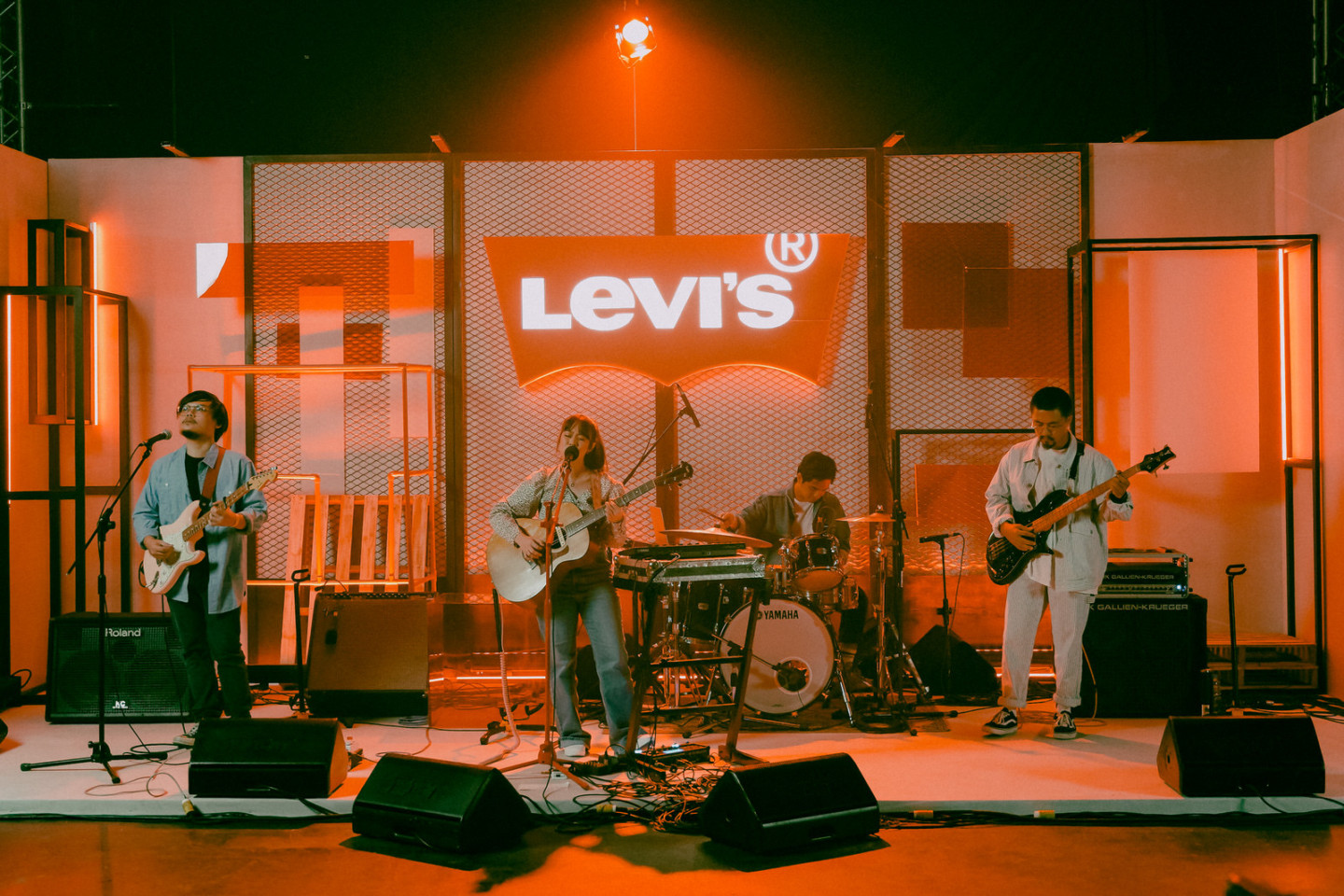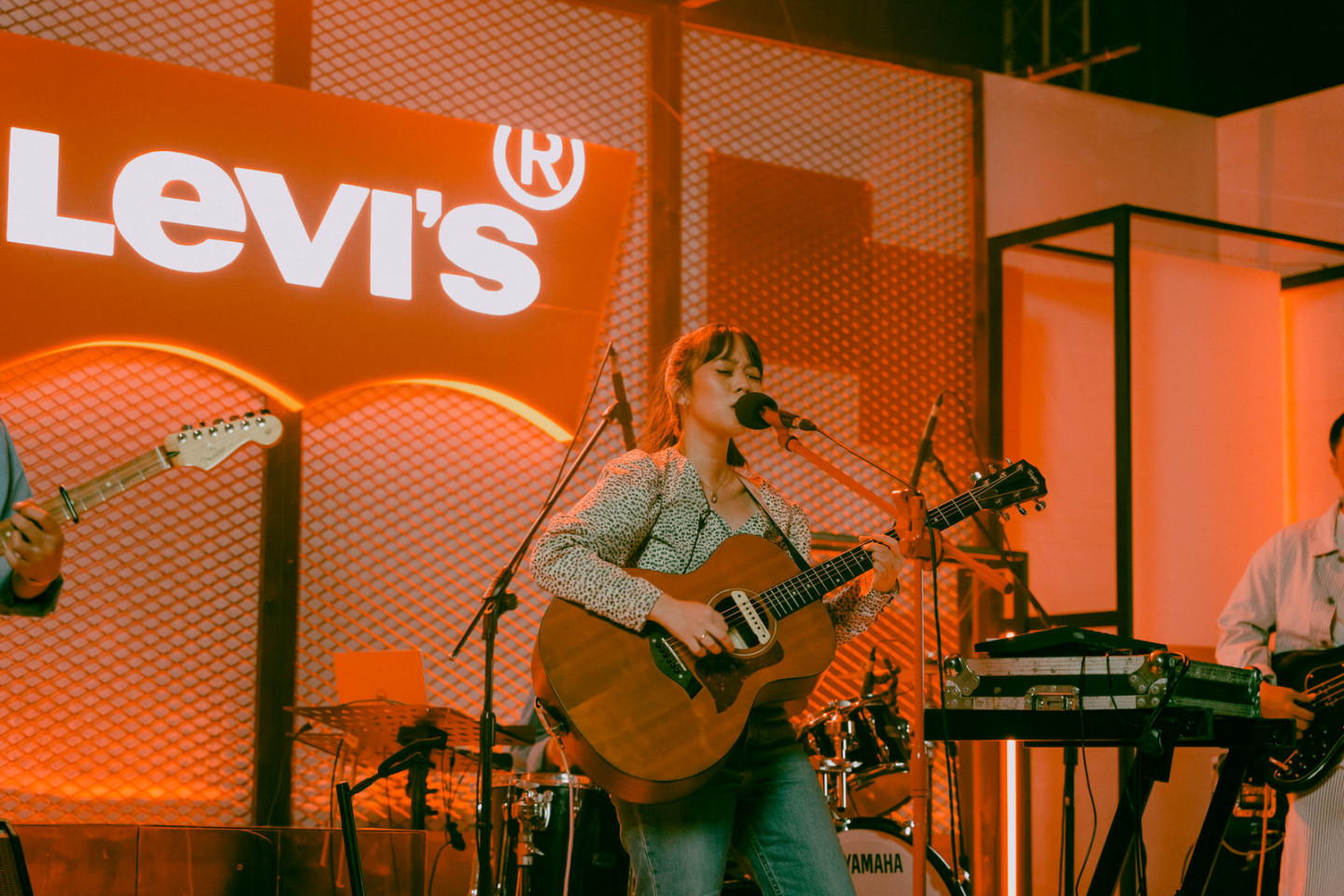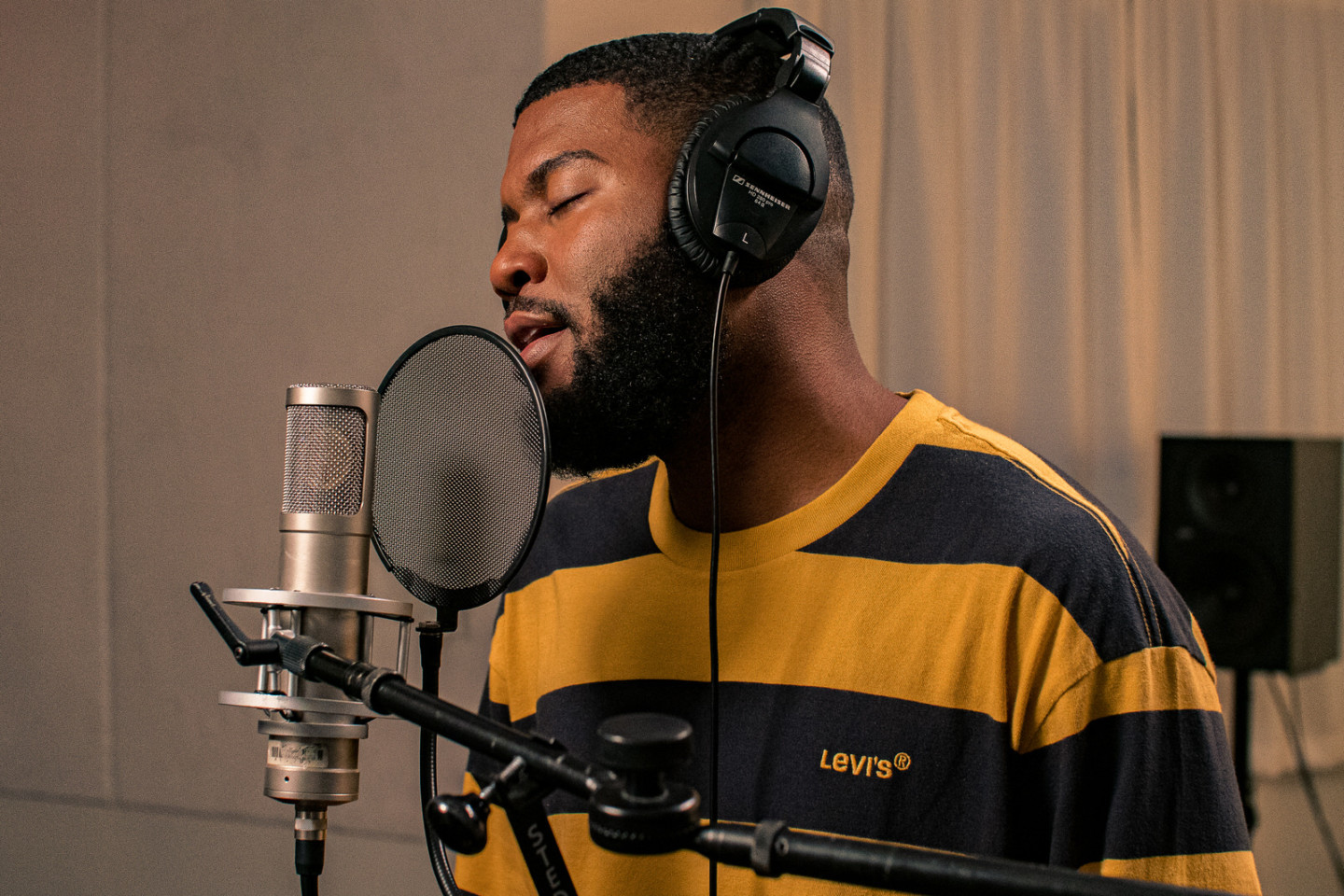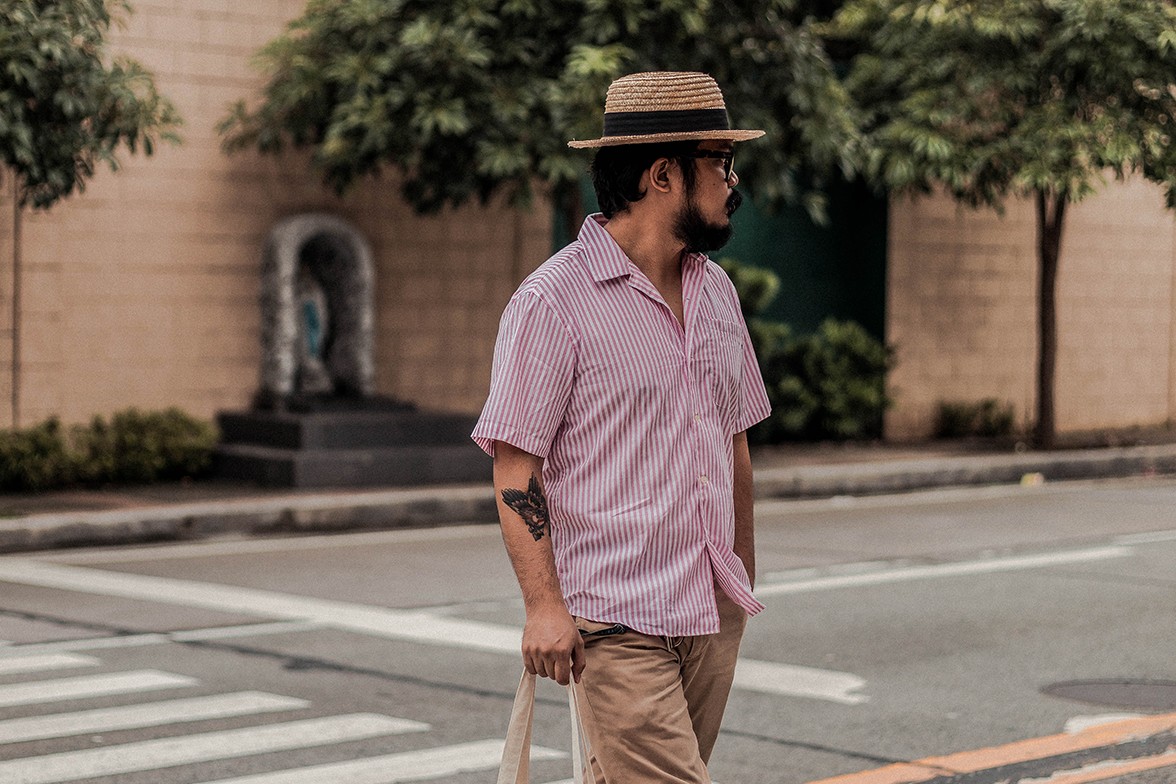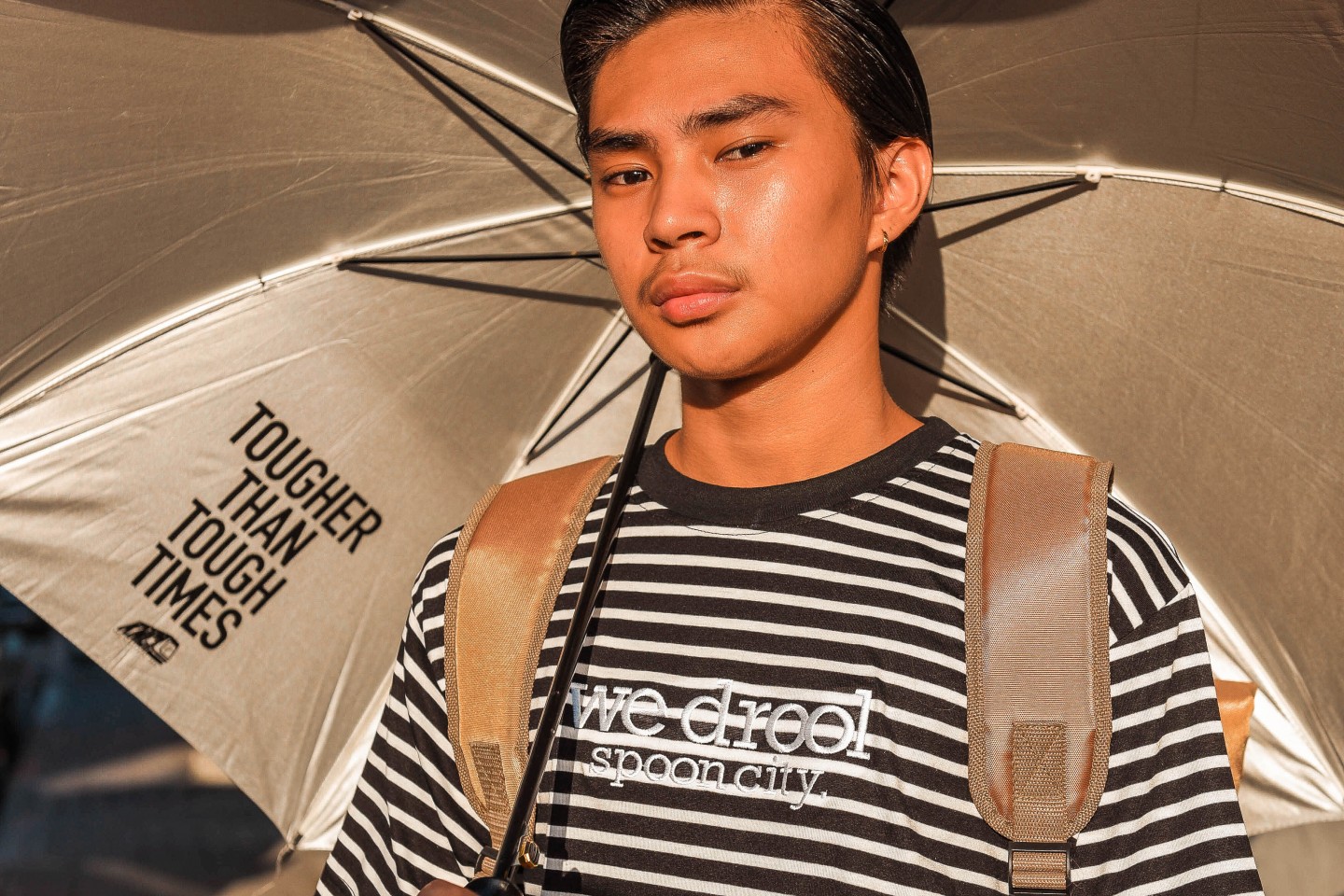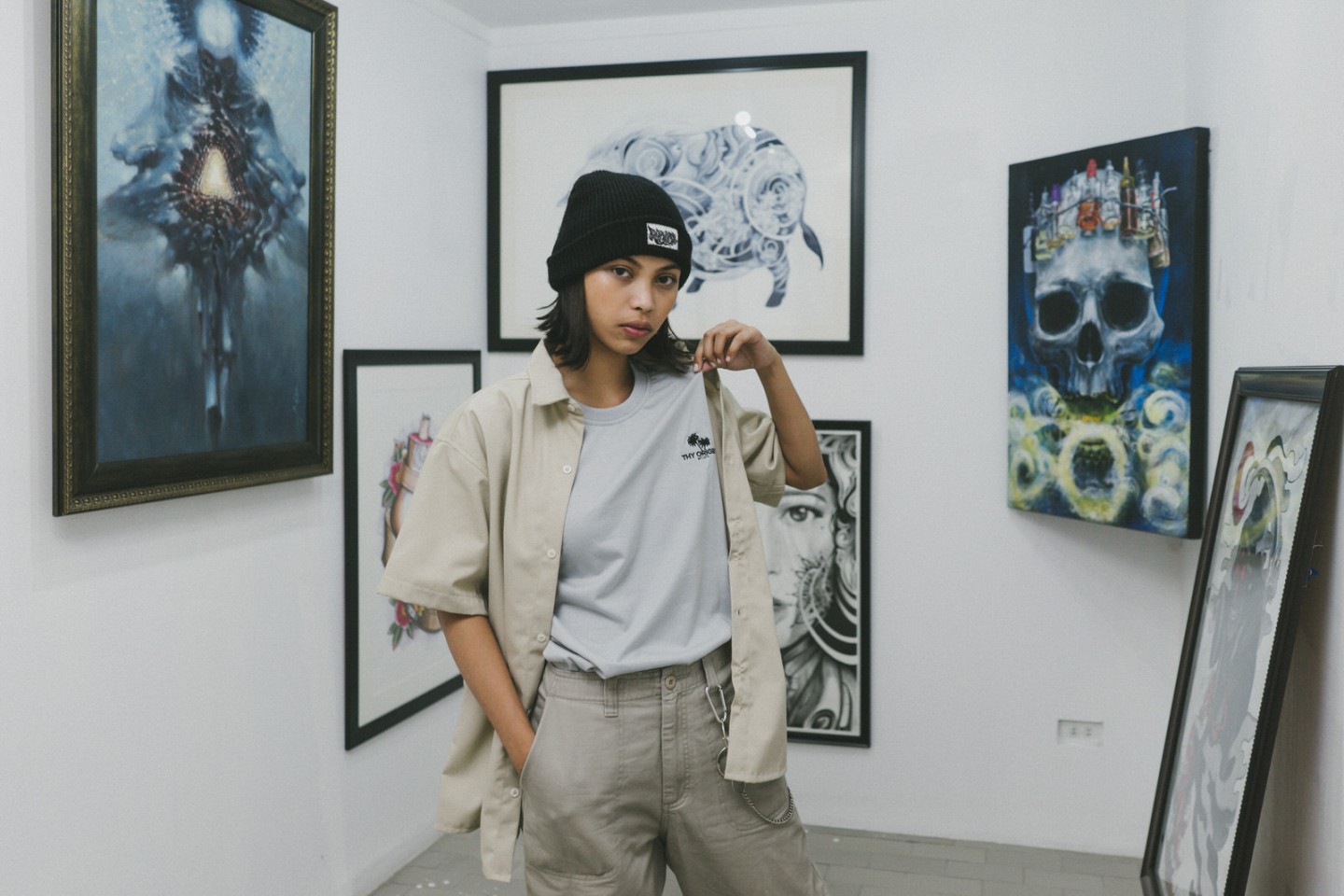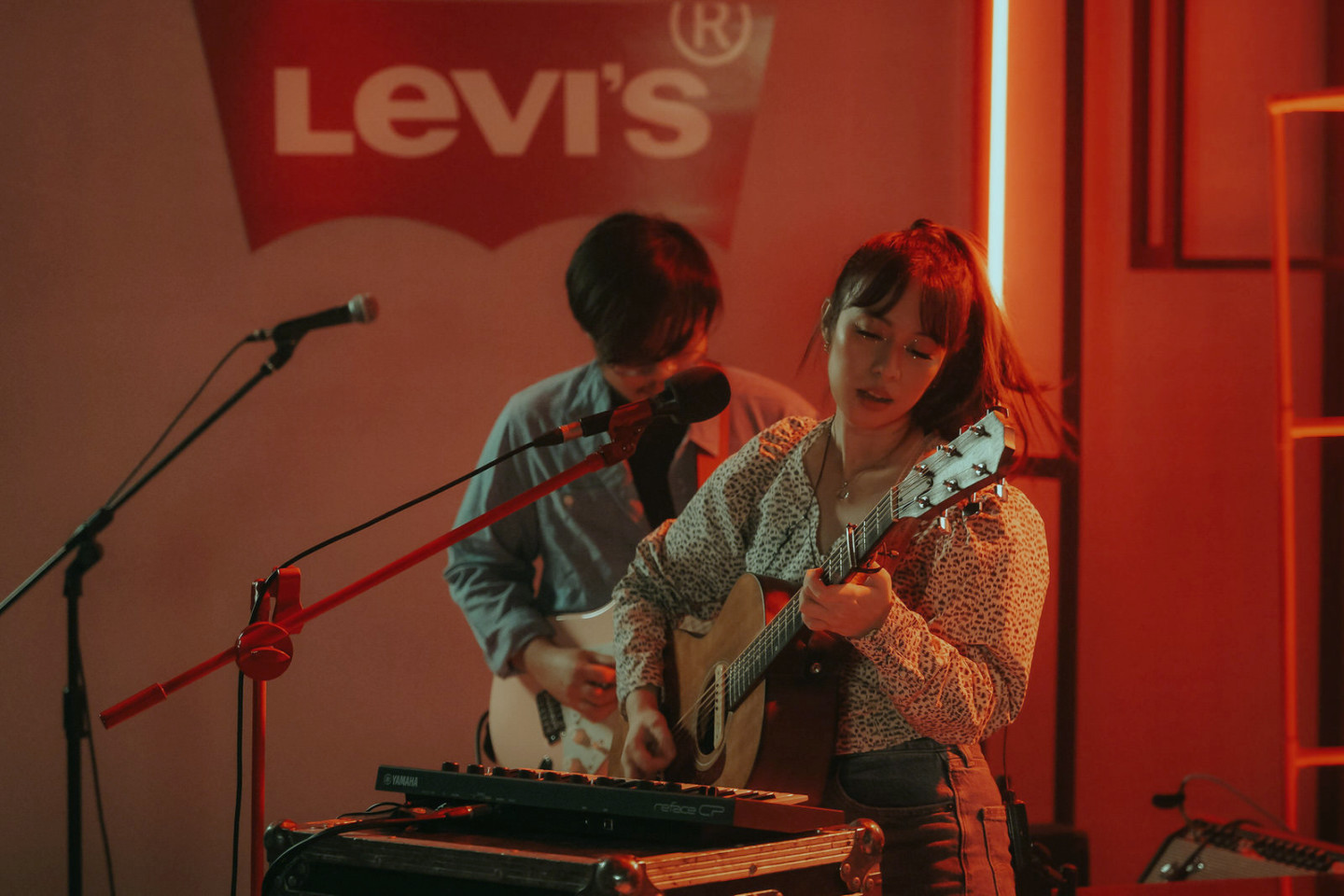
From indie pop duo Reese and Vica, to solo performances as Reese Lansangan, the 2009 to 2016, now 2022 gap has done a lot for the singer-songwriter and artist. Reese Lansangan has run the gamut and toted the “independent artist” since her earlier days. We sat down and caught up with her to talk about her musical journey and her partnership with Levi’s.
The Levi’s Music Project is a program where promising individuals who hold a high interest and gusto for music will take their skills, their passion and compete for a spot of getting a chance to work with and get mentored by Reese. With her expertise, her know-how in the field, and all the years of experience that comes with being so seasoned and in the game, the Levi’s Music Project promises to be a fun, engaging, and explorative experiences for all the contestants who not only submit their experimentations and products with the samples, but have a chance to get their music recognized, collaborated upon, and launched into the musical and artistic stratosphere. You can know more about the Levi’s Music Project here, or visit their Discord channel here.
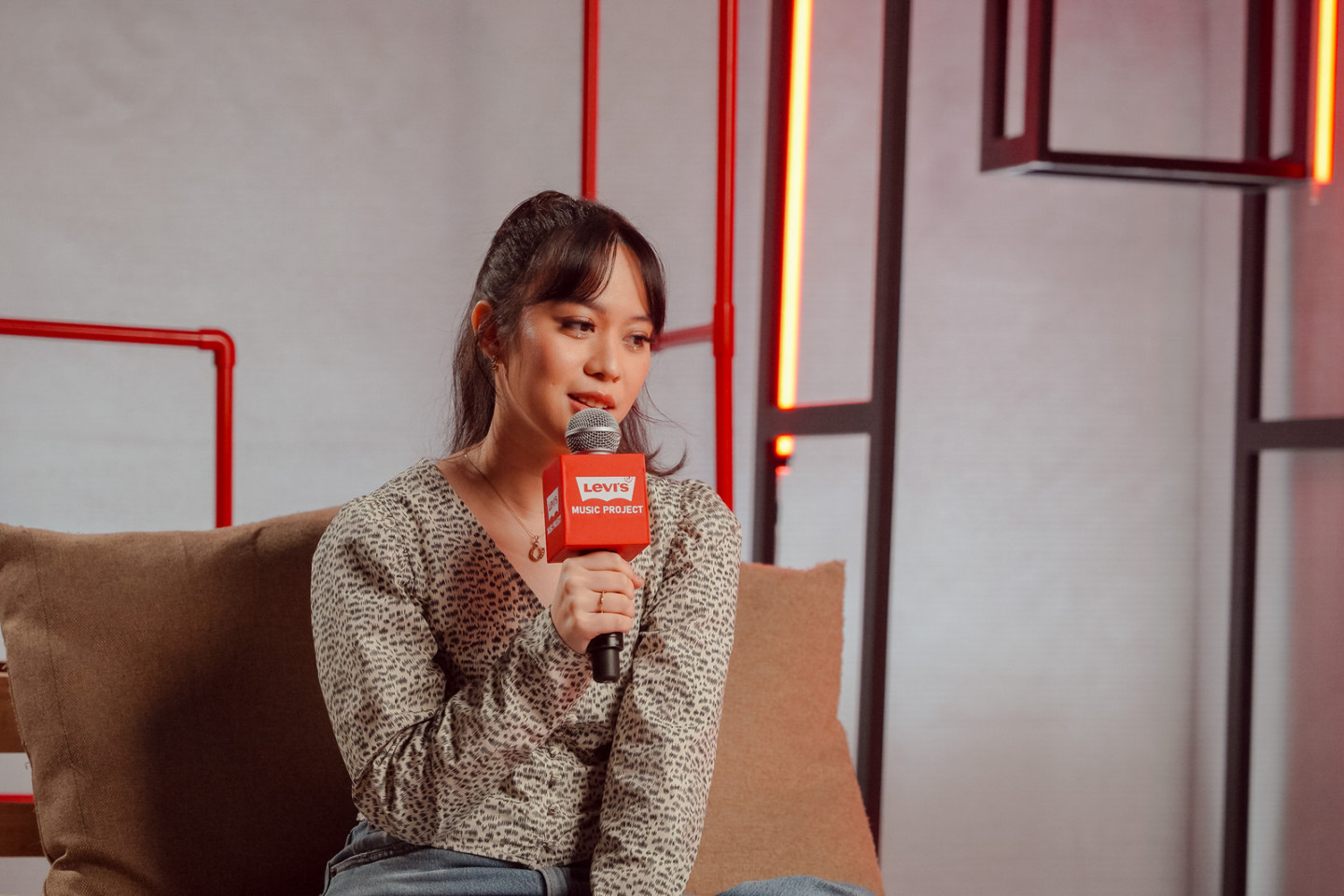
Can you tell us your thoughts on the Levi’s Music Project?
Being chosen as the representative for Levi’s Music Project has got me really flattered and really excited to be recognized as somebody who has some sort of contribution in the local music scene, and somebody who is also in the position to guide newer musicians and songwriters who are starting out, maybe trying to get their footing. I love that! I always saw myself as just ‘beginning,’ despite having been here a long time. I’m really thankful that I have this chance to represent who I am in this brand of music.
Music making these days is so different than when I was just starting to get into it, you know? I still remember when I started making music, compared to now, I felt that the jump was so large. It could start from Soundcloud, being in high school, playing around with software, to uploading something really quickly. No one really knew what could happen, but so many others got their starts through this, too: Billie Eillish, Lorde, to name a few — so many who started that way, from those platforms. It’s so different now, with the internet being a staple and social media being a part of our lives. Anyone has what it takes to be an artist and I’m just so excited to be the part of these new and budding artists’ journeys.
In your earlier songwriting days, who would you have loved to collaborate with?
In my high school days, I definitely looked up to Parokya ni Edgar. I loved their approach to music, their humor. Their more famous songs have a likeness to it, an approachable kind of humor that’s unique. One thing, too, was that since I write primarily in English, I’d have loved to collaborate with somebody whose expertise is expressing themselves in jokes and in Filipino — through songs! There was a way about how they knew how to navigate comedy in their music, amidst other serious things.
They knew how to use wordplay in their songs. Something lewd, maybe dirty, but they found a way to shift it, you know? I found it very cheeky, even compared with my own… something I think I might have benefitted from them, had I had the opportunity.
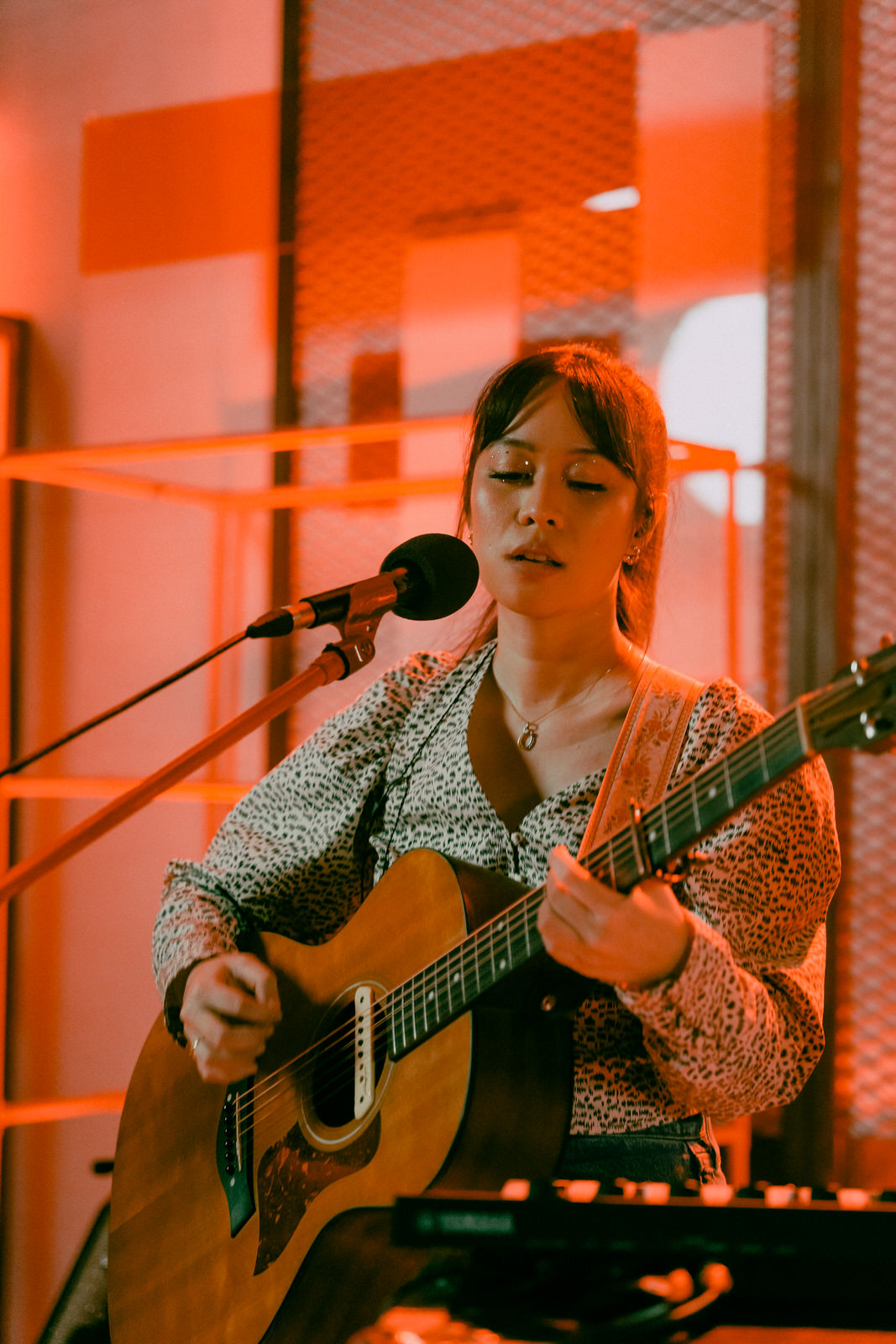
Tell us about your first experience interacting with other newly experienced musicians when it started to pick up for you. Do you still remember the first gigs, those first few months working the shows?
Funny enough, I still remember when I took classical music through UP College of Music’s extension program, that I would take Saturday sessions to study classical guitar, some violin, the drums at one point, and even did recitals! I would hate recitals just because I didn’t like performing because it gave me anxiety. I was so nervous every time I would have to go on stage — my hands went super clammy, got super cold, I’d have a hard time sleeping the night before, I would get so nervous about making a mistake.
In singing though, being in an indie-pop duo came to mind (Reese and Vica). I still remember our first gig, taking place at November 27, 2009, Magnet Katipunan, and that we invited everybody that we knew. Cramped, and in a tiny room — we were so nervous. But we did it, you know — we got up there, we did our songs, but we always remember that. That was where it really all began.
When I was still trying to figure out how to do the whole solo music thing, I was invited by a friend to do this really big gig as a solo artist, at Greenfield. This was in 2013 and that was my very first big stage, practicing all day, the day before, day-to-night. And when I got there the next day, I barely had any voice. I hadn’t known at the time that you had to take care of your voice, being conditioned! Uh, my voice at the time was so bad, and I was the only one who brought my gear, plugging in all this stuff; nobody but me, not even someone to drive me there! That really put a mark on me, and that it took a while was the largest thing.
It takes time, it takes effort, it takes a lot of conditions to get you prepared for a performance, and you can’t do it just the day before. It has to be an exercise, and that you had to constantly be on it. That, to me, has stood out, how similar it was to an exercise.
Do you remember how it was when other artists/performers would encounter you and how they would come to react after you’d meet again, maybe a few gigs, a little bit of time that’s passed by?
To be honest, performing during that time didn’t really feel like how it feels today, even pre-pandemic. It really just felt like something that pushed opportunities, you know? If there was an opportunity, I’d grab it, and felt more like playing around, having fun, more than just performing as “a musician.” As I started playing for bars, I gained friends who would usually see me around as well, and we started to be known as the regulars, way before streaming was so ‘in.’
It was really new, and even then nobody knew who we were, everyone who was supposed to play for the night would be almost the only people in the audience who knew them in the first place, so it really wasn’t that big. It was a lot of ‘tugtog’ (playing music), so you just showed up, had fun, then ate after. It really felt more like hanging out, than a job, and to that you didn’t even get paid, you just went there, got drink stubs, food stubs… from there, it snowballed. People started recognizing us, taking pictures, something the streaming boom took part in.
Which is your favorite step of the musical process? Do you enjoy the initial nebulous stage, the shots-in-the-dark-phase of writing? Production? The rough cuts and B-sides?
I think the first time we play anything new is just very nerve-wracking because nobody really has heard of it, unless you already released it in a record. The recording process, definitely, aside from the actual writing. The whole thing is a mix of excitement and frustration because there are moments you know you are writing; you’re sitting there, you’re already done in 15 minutes — now that’s rare, but when it comes by, usually the song is really good, the muse is with you. Those are those moments that you really look to have more of.
Songwriting, the actual process of sitting down, of finding the words and the melody is exciting and exhilarating, but also frustrating, when you don’t quite get there. You know what you’re looking for but can’t quite navigate your way through just yet; it’s a frustrating process getting there. The exciting thing is that the song is done, you’re adding all the elements in the recording, you play it back, and the bounce is so rough that you hear it! You play it, over and over again, spotting mistakes, spotting spots that could be a bit better, and the recorded version starts to take shape, to mold out.
What aspect of the project are you most excited about? The production, the new ideas, hearing what aspiring artists consider as fresh, exciting, forward ideas? Maybe something that holds everyone together?
Oh, definitely, the meeting of the minds, is the most exciting. For sure, for whoever I end up working with, there are things that they know that I don’t know, vice-versa too, I would also in the same spirit love to learn from them. They might be amazing producers. I’m not as adept as where they could be, and that leaves a lot of space for me to pick their brain as well.
The things I’m confident about — the things that I’ve honed over the years, in terms of writing — is where I can give input, and hopefully that helps shapes, or re-shapes, their own writing, the music itself. I would love to see the things that we can share with each other, when we do meet these musicians, who are ready to create, get their music out there, the ones who’re just waiting for that chance, that push, and help them, and maybe learn a thing or two from them, just the same.
It’s safe to say that the culture of music-making, performing, and self-launched artists has changed since you started your music career. Do you think you’ve changed your approach to writing because of this culture change?
Before, I used to write whenever I felt like it, however rare, because I was still a student. I had a lot of things to think about, back then. But because this was the career path that I’ve taken, I’ve written more, with the sense of awareness, that I could turn this experience into songs. It was a lot of “Ooh! I can write about this, I can make this into a song!” Writing about a bunch of random things, things overheard from other people, when I head outside; fictions, from in my mind, are also capable of turning into songs, so my eyes opened, my ears opened. The music-making process has never been so instantaneous, seamless, in that way.
In a way, things changed even with the writing process, because even how I would word things, or say things, took a change. Before, I wouldn’t even think about that, because I was just writing for myself, performing for myself, but now that you’re putting out music, and other people hear it, there’s really a responsibility. Like it or not, people listen to you, some even looking up to you. People wait for you to release things, so you have to be able and ready to stand by what you said. Kind, thoughtful, even with what you say, without removing any of the honesty and artistry in the process. Those are two things that have changed in my music process, because of today’s landscape.
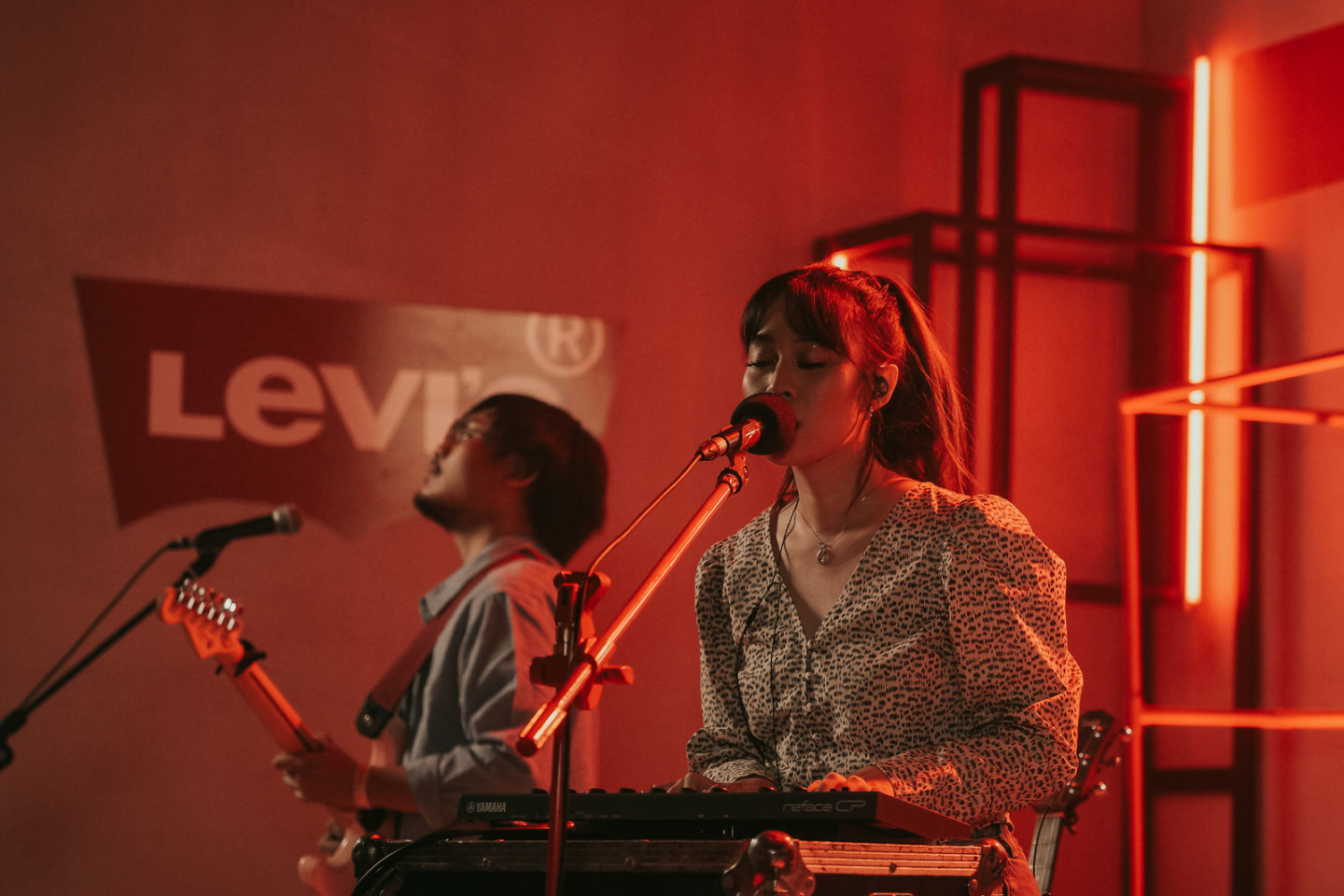
Has perception of Reese as the artist versus Reese as the performer, the music enjoyer changed over the years as well?
Every time I listened to music, even as a young kid, I would be a sponge! I’d listen to appreciate, but unconsciously, I’d absorb certain things. As an example, there would be certain phrases or hooks that I just found catchy, like instantly, you know? I noticed that right off the bat — and then it would somehow find its way into what I wrote. That’s the magical thing about it: you listen, you take whatever is there, and before you know it kind of seeps right into the work. After it gets in, it’s already blended, not straight like a copy of exactly what you heard; something like Lego, an amalgamation of everything you’ve formed over time, even without thinking about. I think all music is kind of like that.
I don’t necessarily listen to something and actively think “hey, I could emulate this; take this and that,” and all. But I am aware that when I do listen to music: you listen to something, and it’s like, ‘nakakakiliti’ (it tickles!) — a detail of something you really like, something identifiable. ‘Nakakakilig’ (excitingly gratifying), in a way, and it’s a good idea no matter how you spin it!
A good idea’s a good idea; a good line is a good line; and you don’t always have to pick it up, but I find that whenever I appreciate something in parts of songs, they make their way into my music in a blended sort of way, not like a copy but as an amalgam of things I’ve appreciated over the years.
What’s something that’s stayed the same since all those years ago?
Saying that’s inside of my head, inside of my heart. Definitely. I’ve never stopped myself from saying what I meant, or saying what mean, what I really feel. It can be a bit jarring to hear, I understand — someone I’ve been involved with, for example, or someone that’s been my friend before, that I’ve written about. And then you hear about me, and some super specific details about our relationship. You would be all “what the heck!?”
You know — that’s something I love about Taylor Swift. She obviously writes for herself, and also for everybody else. That’s the beauty about being very specific about your experiences, is because no matter how deep, and how detailed you get, there will always be people who would identify with that and feel that exact same way. Color of shirt, put in a song, it doesn’t matter — someone would always make what the narrative of the song to make it theirs, to fit their experience. Say what you feel, and the fruits of the listening will always show.
With regards to the Levi’s project, what’s something you definitely want taken away by the participants?
If, for anything, that putting themselves out there is good and beneficial, and can be really fun. A lot of people work behind the scenes, do things, create, but they don’t really share it. It doesn’t mean that you should share everything, or that you create solely to post, but it’s just great when other people can hear it, take part in the process! I hope with (the contestants), joining this experience, this project, being vulnerable enough to hear feedback from someone else and to incorporate that in their work — that’s an experience I hope they find rewarding, something they don’t resent.
I hope it’s something they come to approach and do much more often with their music, and in their creative work: to share, to try, especially with opportunities like this that come along, where you can work on something beautiful with somebody that you might not expect, someone you wouldn’t have thought to work with. I think that’s great.
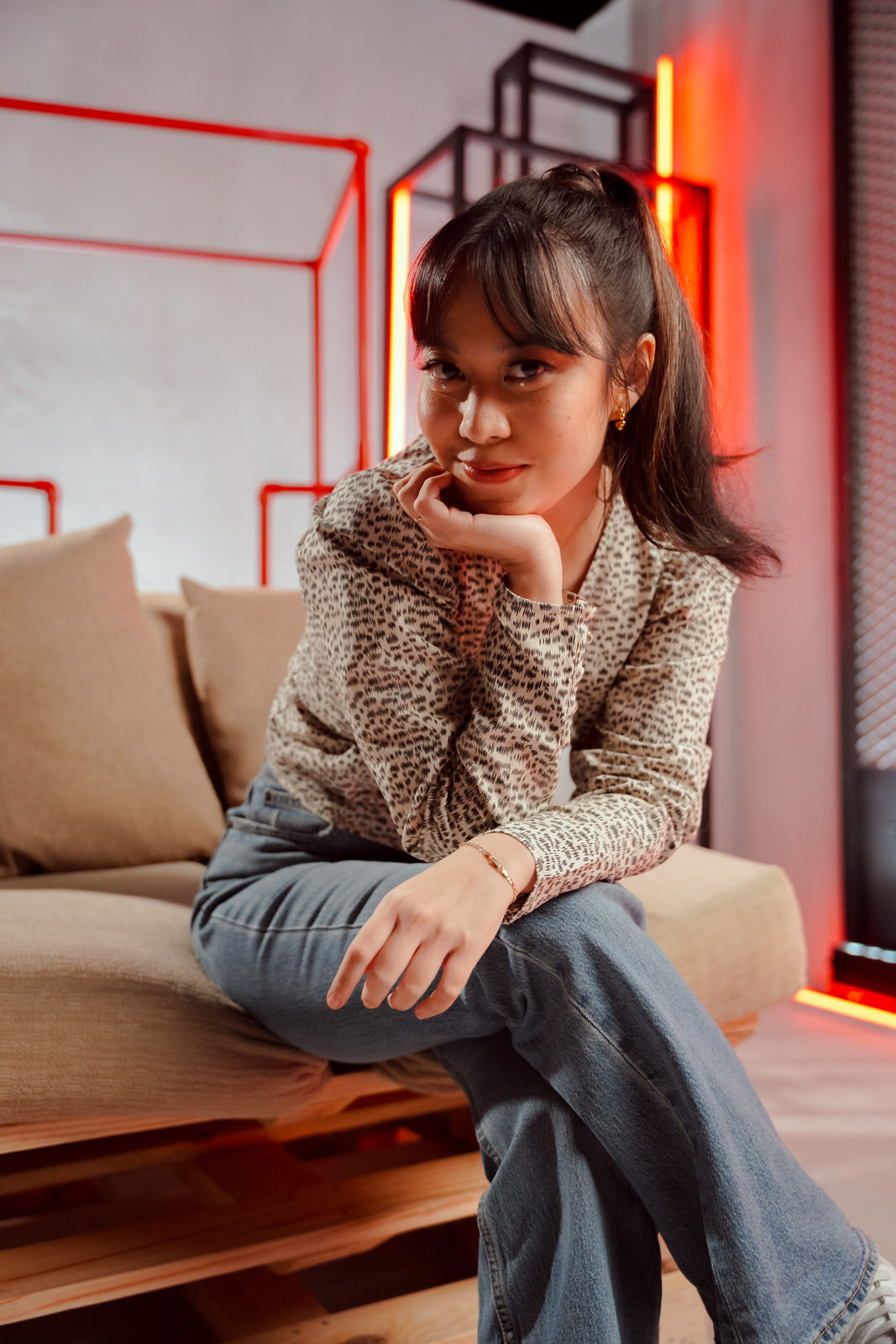
Someone’s always making art about something — and musicians, like all other artists, can get stuck in a rut. What has been your tried and true method of getting yourself out of a rut?
I want to say that it happens to everyone — you’d have to be gifted to not have writer’s block. Carly Rae said she didn’t get writer’s block; ‘Sana all!’ (I hope everything’s like that!) I suffer from feeling so sucky whenever I go in those periods. I hate it, it makes me feel like I can’t do anything good, and won’t ever again. I want to say that it’s normal, and that you shouldn’t approach the process like me; don’t be so hard on yourself. A lot of the time, when you’re trying to finish a song, or when you try to go in a certain direction, it can’t always work out the exact way you want. The solution, honestly, is to get away from it, even for a moment, and to revisit at a different, maybe random, time.
Of course, you’ll have a different mood, will hear with a different ear, and these things attribute to affect the song. So, taking a break is something I really recommend. Just leave it alone for a while — be it days, weeks, a months, unless of course you have a deadline. Then, that’s a lot more critical. But if you don’t have one, try to see how time shape your song differently! And how new knowledge, new music, since taking a break, can contribute to the song’s finishing.
Take a break, it’s normal, I promise. Choruses are hard. Bridges are also hard. It’s fine.
If the Reese of 2016 could see the Reese of today, what do you think she’d say?
First off, she’d probably be all — “What the heck? What’s happened to you!?”
I think, for who I am right now, if I saw myself in the future, I’d have a hard trouble trying to visualize it. The tendency that comes with age is that you seek for more, you wonder about ‘what’s next,’ and all that, but if I saw my past self, and how they would see the present version… that’s actually a pretty good lens to start appreciating everything I’ve come through, you know?
Like, 2016 Reese had very different ideas and dreams about how music would pan out as a career. Seeing the things I’ve done, and I just put out my second album, of which I’m very proud of, getting help from all of the friends that I hold dear in my life, is something I really cherish. It’s gotten me where I am, especially as an independent artist with a team that I trust. The fact that I’m still independent, and that I’m still able to do all of these things, I would definitely congratulate my present self for getting here and for still continuing to do music, for still having that heart, and not getting jaded.
You know — being authentic to myself; that’s something I’m proud of. I know she would be proud of that for me, for us, too.

